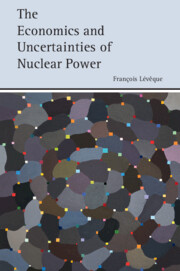Introduction
Published online by Cambridge University Press: 05 January 2015
Summary
Is nuclear power a thing of the past or a technology for the future? Has it become too expensive and dangerous, or is it still competitive and sufficiently safe? Should emerging countries develop nuclear power or look elsewhere? Can we trust calculations of the risk of a major nuclear accident, given that their results diverge? Is international cooperation on safety and non-proliferation bound to fail or is it in fact gathering strength? The views on all these subjects are contradictory. Often the only common ground between them is their uncompromising, categorical nature. A quick look at the facts certainly fails to yield any obvious answers. The construction projects for new nuclear plants in Europe are behind schedule and well over their original budgets; meanwhile similar projects in China are on target, both for their deadline and budget. Japan, a country renowned for its excellent technology, failed to prevent a major accident at Fukushima Daiichi. The United States, surfing on a shale gas boom, is turning its back on nuclear power. In Europe, the United Kingdom is planning to build several new reactors, whereas Germany is stepping up plans to retire existing plants. Depending on which source you accept, the disaster at Chernobyl caused several hundred fatalities, or several tens of thousands. The number of major accidents observed since the start of nuclear power is greater than the figure forecast by the experts’ probabilistic studies. Similarly the perception of nuclear risk is very different from the value calculated by cool-headed scientists. After lengthy debate, the European Union has adopted a common framework for nuclear safety, but the safety authorities are still national agencies and civil liability regimes form a contrasting patchwork. Lastly, with regard to the non-proliferation of nuclear weapons, Iran has signed the international treaty designed to limit the use of civilian nuclear facilities for military ends, but at the same time it has launched a uranium-enrichment programme which bears no relation to its energy requirements.
- Type
- Chapter
- Information
- The Economics and Uncertainties of Nuclear Power , pp. 1 - 6Publisher: Cambridge University PressPrint publication year: 2014



